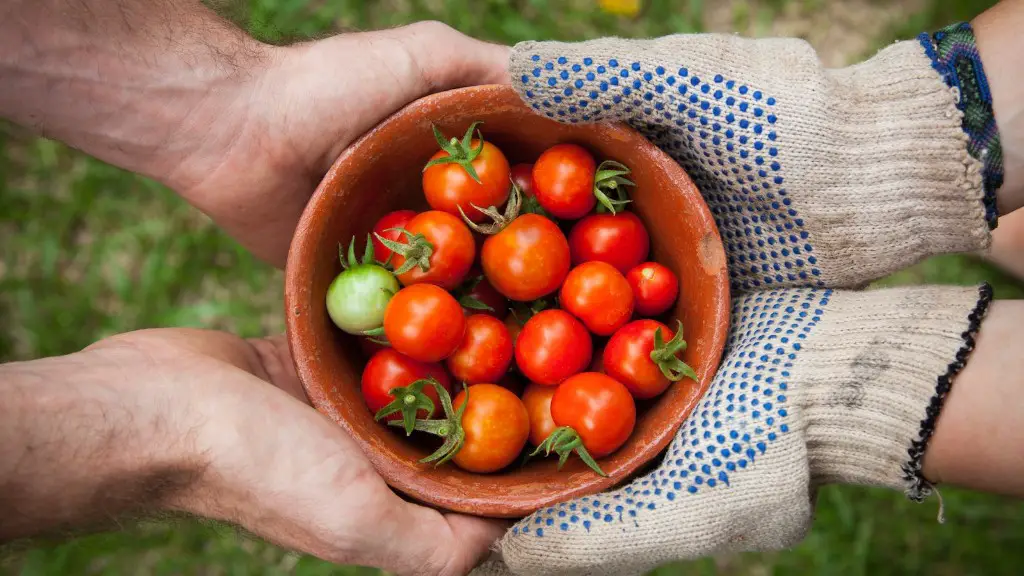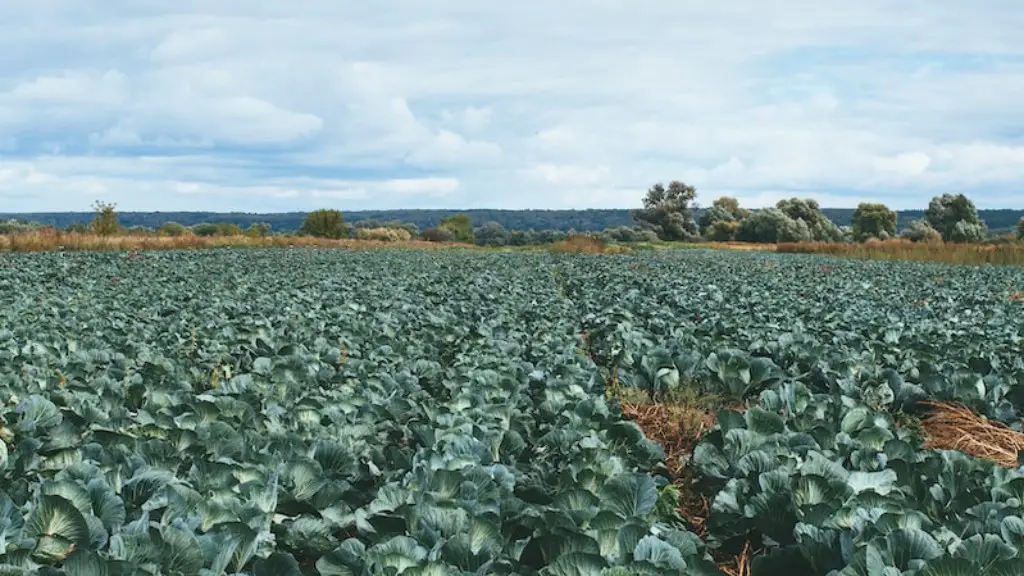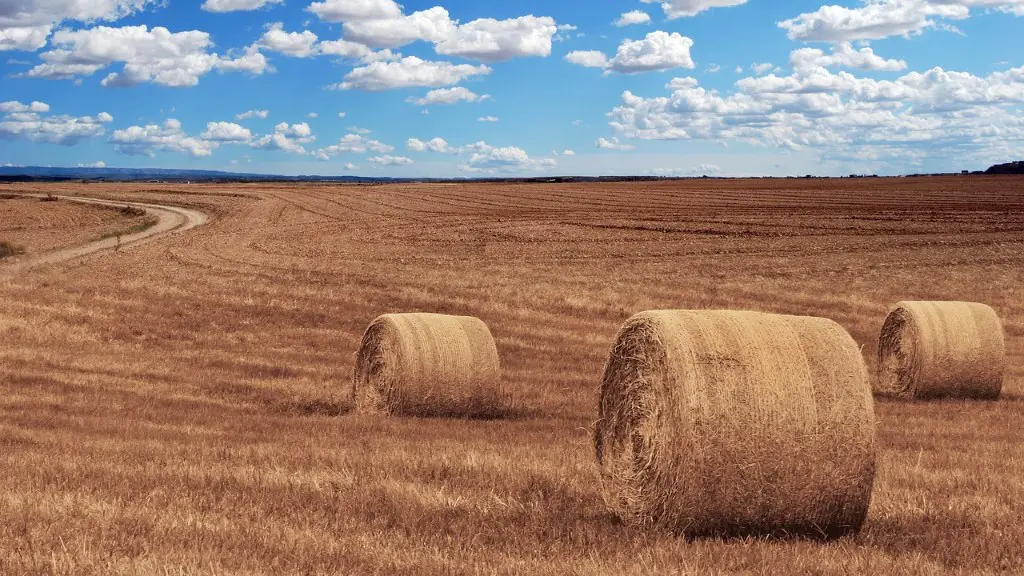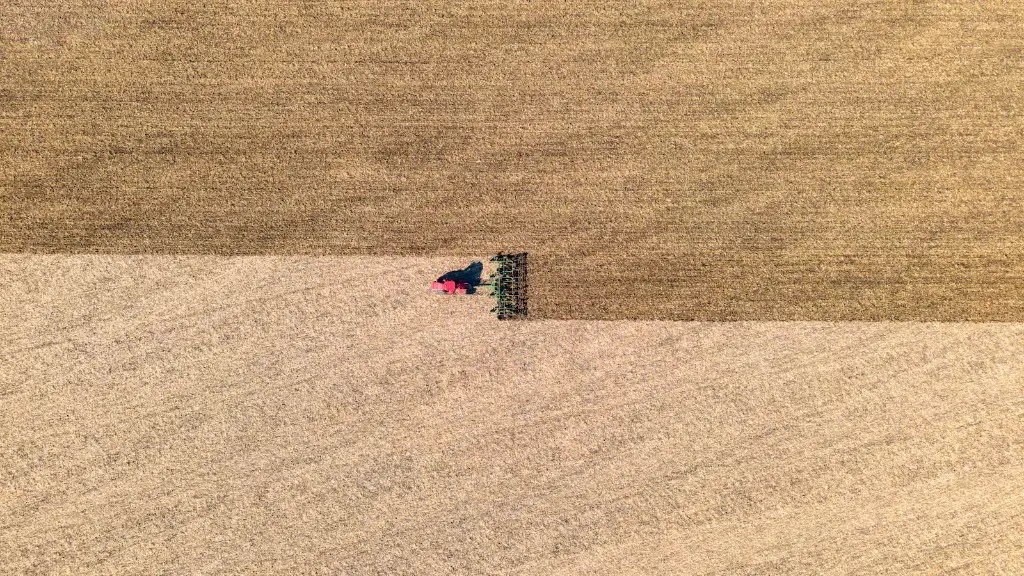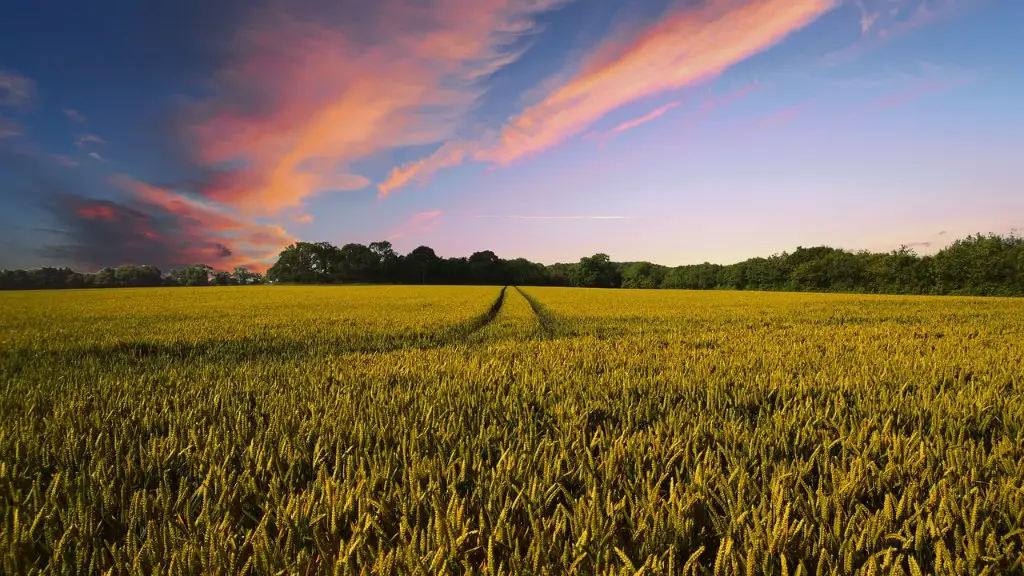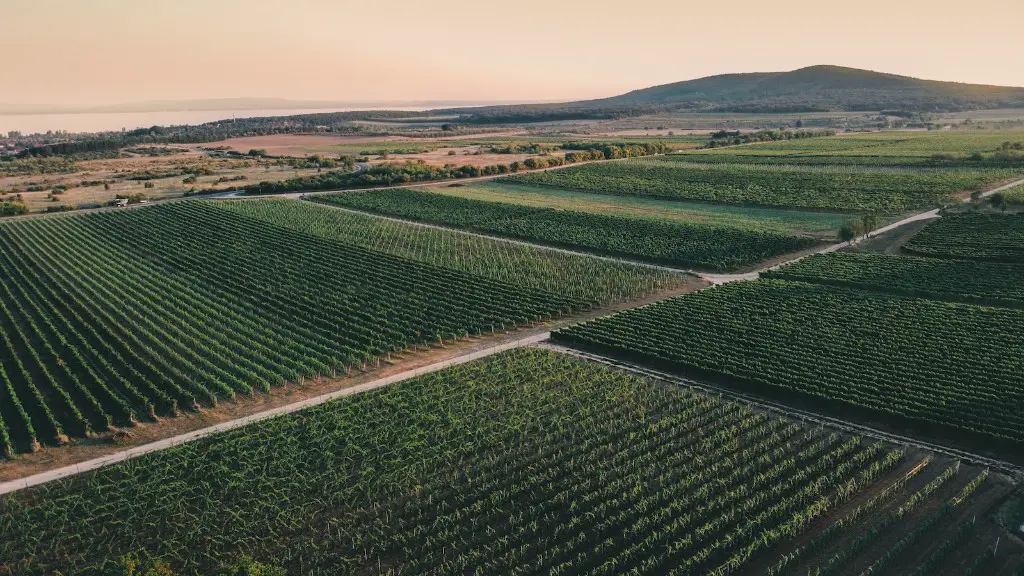Agriculture is one of the most important activities of human life. It is the process of cultivating land and raising animals and plants to provide food, fuel, and other products necessary for human existence. Agriculture is considered to be the world’s oldest industry, having been around for thousands of years. Agriculture falls under the broader category of the food and fiber industry. This industry encompasses all aspects of the production, processing, packaging, distribution, and marketing of food and fiber-based products.
The food and fiber industry is a globally important sector and is an integral part of the global economy. It is one of the largest employers, both nationally and internationally, and provides essential resources for commercial, industrial, and residential customers. The industry is also a major contributor to the Gross Domestic Product (GDP) and exports. This industry includes activities such as livestock and dairy farming, production and processing of fruits, vegetables, grains, nuts, legumes, and animal feed.
The food and fiber industry contributes to the world’s food and fiber supply in many ways. It is responsible for producing a variety of crops, ranging from fruits and vegetables to cereals and oilseeds. The industry also provides livestock, poultry, fish, and other proteins. In addition, it is involved in the process of converting crops into processed foods, especially animal feed and human food. The industry is also responsible for producing and supplying textiles, such as cotton and wool, to meet the demands of both commercial and residential customers.
The food and fiber industry is composed of multiple sectors and encompasses a wide range of activities and organizations. The most significant sectors are the agricultural production sector and the food processing sector. The agricultural production sector includes everything from farming and ranching to crop production, animal husbandry, and horticultural activities. The food processing sector involves activities like milling, packaging, and further processing of agricultural products for human consumption.
The food and fiber industry is heavily reliant on technology and it is constantly evolving and improving in order to meet the demands of the customer. Technology has allowed farmers to produce more food with less land and resources. It has also enabled the industry to shift towards a more efficient, environmentally friendly production model. Technology has also allowed food companies to track and monitor their products from start to finish, reducing food waste and providing customers with higher quality products.
The food and fiber industry is a major contributor to the global economy, providing jobs, income, and essential products to people in all parts of the world. It is an ever-growing and complex industry that must stay on top of the most up-to-date technological advances in order to remain competitive. Agriculture is an important part of this industry, providing valuable resources and supporting the production and marketing of food and fiber-based products.
Agricultural Production
Agricultural production is the process of cultivating land for the purpose of producing crops or raising animals for either commercial or subsistence use. This sector encompasses activities such as crop production, animal husbandry, and horticultural activities. It is also responsible for producing and supplying most of the world’s food and fiber supply, including fruits and vegetables, cereals, and oilseeds. Agricultural production is heavily reliant on technology and requires farmers to utilize the latest agricultural practices in order to remain competitive.
Farmers must be well-versed in a variety of areas in order to be successful in the agricultural sector. This includes knowledge of soil fertility, crop selection, and pest control. It is also important for farmers to understand the principles of animal husbandry and the production of different animal products. In addition, they must be aware of the latest farm machinery, such as tractors and combines, to ensure maximum efficiency and productivity.
The increasing demand for food and fiber has resulted in an increased demand for agricultural production. As a result, farmers are continuously improving their production practices in order to meet the demands of their customers. This includes improved use of technology, more efficient farming techniques, and the introduction of new and improved varieties of crops, animals, and equipment.
Agricultural production has also become increasingly globalized. As a result, the industry is heavily reliant on global markets and trends. Farmers must be aware of global agriculture markets and the political, economic, and environmental conditions that affect their production. Otherwise, they will be unable to meet the demands of the global market.
Agricultural production has become increasingly complex as technology advances and global markets change. Farmers must constantly stay informed and up to date on the latest information in order to remain competitive. The industry will continue to be an important part of the global economy for many years to come.
Food Processing
Food processing is the process of transforming raw ingredients into foods that can be consumed by humans. This sector of the food and fiber industry plays an important role in producing and supplying food to people all over the world. It includes activities such as milling, packaging, and further processing of agricultural products for human consumption.
The food processing sector involves a variety of businesses and organizations, including farmers, processors, packaging companies, and wholesalers. These businesses are responsible for the processing, packaging, and distribution of food products to meet the demands of customers. In addition, they are responsible for ensuring that the food products they produce are safe and of the highest quality.
Food processing is typically divided into two categories: primary processing and secondary processing. Primary processing involves activities such as milling, husking, cleaning, and sorting. It also includes turning raw ingredients into edible products, such as flour, sugar, and oil. Secondary processing involves activities such as canning, freezing, and packaging of food products. This ensures that the products are safe and of high quality when they reach the consumer.
Technology has played an essential role in the development of the food processing sector. It has enabled companies to produce safer, higher quality products in a more efficient manner. Advances in technology have allowed companies to track and monitor their products from start to finish, reducing food waste and providing customers with higher quality products.
The food processing sector is heavily reliant on the agricultural sector as it is dependent on the production of raw ingredients. As a result, the industry is closely tied to other sectors, such as the agricultural and manufacturing sectors. As the demand for food increases, so too will the demand for food processing.
Food processing is an integral part of the food and fiber industry, providing businesses and organizations with the necessary resources to produce and supply food products to meet the demands of customers. As new technology is introduced, the industry will continue to evolve and change to meet the needs of its customers.
Food and Fiber Distribution
Food and fiber distribution is the process of transporting food and fiber from the production sites to the customers. This sector of the industry is responsible for ensuring that customers have access to the products they need. It encompasses activities such as shipping, storage, wholesale and retail sales, and delivery.
Food and fiber distribution is an essential component of the food and fiber industry. It allows customers to access the products they need, when they need them. This sector also plays a key role in helping farmers, processors, and manufacturers to better serve their customers, as well as providing them with a source of income.
Technology has been instrumental in the development of the food and fiber distribution sector. Technology has allowed businesses to track and monitor their shipments, which has improved efficiency, reduced costs, and resulted in a more reliable service. In addition, new technology has allowed businesses to expand their operations and reach customeers in different geographic regions.
The food and fiber industry is heavily reliant on the food and fiber distribution sector. It is an increasingly global industry and businesses must be aware of global markets and trends in order to remain competitive. As the industry continues to expand and technology advances, the food and fiber distribution sector will continue to play an integral role in supplying food and fiber products to customers all over the world.
Food and Fiber Marketing
Food and fiber marketing is the process of promoting and selling food and fiber products to customers. This sector of the industry encompasses activities such as market research, product promotion, sales, and marketing. It is essential for businesses to understand the needs of their customers, as well as the competition, in order to develop a successful marketing strategy.
Technology has played an important role in the development of the food and fiber marketing sector. New technology has enabled businesses to better understand their customers and the competitive market. This allows businesses to tailor their marketing messages to target specific segments of customers. Technology has also allowed businesses to track and monitor their marketing campaigns in order to make sure they are reaching their desired customers.
The food and fiber marketing sector is heavily reliant on the food and fiber distribution sector. It is essential for businesses to have access to the products they are marketing in order to be successful. As the industry continues to expand and technology continues to advance, the food and fiber marketing sector will continue to play an important role in helping businesses reach their customers.
Food and fiber marketing is an ever-evolving industry and businesses must stay up to date on the latest trends and developments in order to remain competitive. Technology has allowed businesses to create more effective marketing strategies and reach target audiences more quickly and accurately. This sector will remain an integral part of the food and fiber industry for many years to come.
Food and Fiber Product Development
Food and fiber product development is the process of creating and testing new food and fiber products. This sector of the industry encompasses activities such as product research, testing, and development. It is essential for businesses to understand the needs of their customers, as well as the competitive market, in order to develop successful products.
Technology has been instrumental in the development of the food and fiber product development sector. New technology has enabled businesses to research and develop products that are more efficient, effective, and environmentally friendly. This has allowed businesses to keep up with the changing needs of customers and the competitive market. In addition, new technology has allowed businesses to track and monitor their product development in order to ensure that products are of the highest quality when they reach their customers.
The food and fiber industry is heavily reliant on the food and fiber product development sector. This sector is responsible for providing customers with the products they need in order to meet their needs. As the industry continues to expand and new technologies are introduced, the food and fiber product development sector will remain an important part of the industry.
Food and fiber product development is an ever-evolving industry and businesses must stay up to date on the latest trends and developments in order to remain competitive. Technology has allowed businesses to create innovative and effective products that meet the needs of their customers. This sector is essential for the food and fiber industry and will remain an integral part of it for many years to come.
